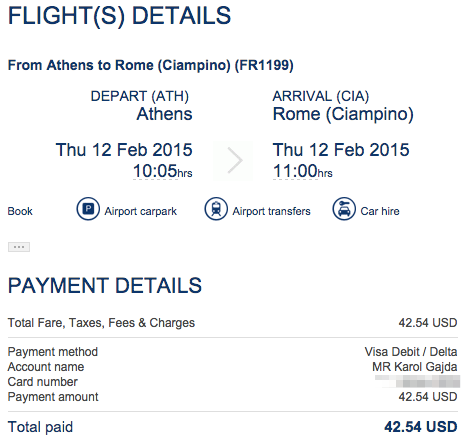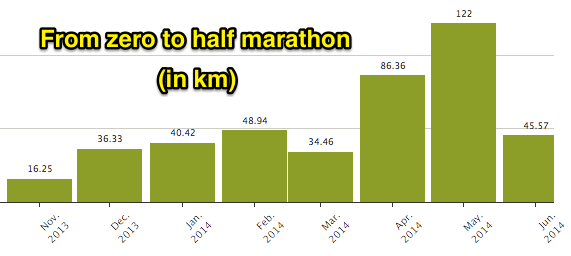This question was posed on Reddit recently and the responses are … interesting.
I wanted to go through the popular comments (those with 1,000+ upvotes) and offer up why or how some of these luxuries are obtainable without being rich.
But first, my answer.
I don’t fantasize about “obvious” luxuries anymore. Maybe that’s because there was a time when I did and when I finally got those luxuries it wasn’t luxurious. Maybe it’s because I wasn’t “rich.” I just had more money than I knew what to do with (the year I was 24 I earned ~$300k USD) and I didn’t have good examples of people doing smart things with money. That’s a lie since my Parents were a great example, but they were/are also more traditional than I am and I didn’t want to follow their lead. Although some of their advice was to buy a house, which was bad advice for me, and I listened to it. Basically, I was kind of your typical “young and dumb” guy who wanted to be rich and own stuff I didn’t really want. It wasn’t until I made friends with people who didn’t have a lot of money, but did a lot of traveling and other fun things, that I began learning how to live a better life. Luxurious in a different way. And not expensive by any stretch.
Also, for the record, I wasted nearly all the money I made in my 20s. Although I was smart enough to seed a 401k and other retirement accounts which will suit me well in 30 years.
OK, so that’s a bit of a cop out answer, isn’t it? So here’s my direct answer: if money was of absolutely no concern I wouldn’t spend any time figuring out how to pay for my sometimes wacky ideas (Roller Coaster Tour, for example). I would also buy a large piece of land and build a camp for friends/family to use. I’m actively trying to make this happen right now, and there are many hurdles. Mostly the cost of nice land and getting other people on board since I can’t bankroll it all myself. (Also, I’m currently not in the US which throws another kink in the situation.) This is still kind of a non-answer because I still do the things I want to do: travel, read, think, build things when I can, take lots of time for myself. All being rich does is solve the money problem. But solving the money problem is part of the journey of doing fun things and I don’t know that I’d appreciate life if that problem wasn’t there. (I readily admit this may just be a rationalization.)
So, onto Reddit. There were lots of answers to this question as it was quite a popular thread. Let’s get to it.
The luxury of time
This one is pretty simple. Not easy, but simple.
- Get out of debt.
- Stop spending time and money on wants.
- Save more.
- Earn more.
These can be done concurrently.
Why does this give you the luxury of time?
Because when you’re not in debt you’re not forced to work more than you want to. When you stop spending time and money on wants (as opposed to needs) you have more time and money for yourself. And when you save money you can pay people to take care of the needs (cleaning your home and cooking, for example) that you don’t enjoy doing or you feel are a waste of your time.
Earning more is actually optional at this point. Though if you earn more it can obviously expedite your buying of time.
Traveling where I want when I want. Being able to just jump on a plane go somewhere without plans and just get a hotel without reservations.
I get this. This is almost my idea of absolute freedom. Except that I’ve travelled like this and wouldn’t like it full time. I suspect you wouldn’t either. I do like this style of travel every once in a while because it’s incredibly fun. So, again, I get this. (Actually, our honeymoon was, “Let’s go to the train station and take the next train leaving to somewhere we’ve never been.” I live in Poland right now and we have an extensive rail network.)
Here is how you can make this happen, although it has limits and I admit that. By doing it this way you will be able to test it out and see if you even enjoy traveling in this manner. Maybe you’re more of a planner than you thought.
Sign up for airline and hotel credit cards that have signup bonuses.
Gather enough bonus points from them to take you anywhere you want for a week. I think 100k (OneWorld or Star Alliance) airline miles should do it. Likely less, but I’ve never booked with points on a whim and am unsure if there are extra costs involved. I’m not sure exactly how many hotel points you’ll need, but it’s easy to figure out on the relevant hotel’s website.
That’s it. Only one real step and a bit of time.
To sustain this lifestyle will take a bit more work, but you could still do it with credit card points if you work hard at it. There are people who devote a lot more time to airline miles than me so just use Google and find them.
Not having a job.
OK, this one’s a bit more difficult. I could just say “quit, go on welfare” but I don’t think that’s practical.
That said, maybe it is. See, all you said was you didn’t want a job. So what do you have to take care of? Food, clothing, and shelter.
Shelter is possibly most difficult. While you still have a job, buy a bicycle and a tent. My friend Darren travels the world living like this, but you could do it by staying closer to home.
Next, food, clothing, and other things. Dumpster dive.
Yes, I’m serious.
Check out how much free food Rob Greenfield eats. It’s incredible.
Then check out Matt Malone who dumpster dives for electronics and sells what he finds, earning tens of thousands of dollars. That takes care of your clothing and other expenses. Possibly even enough for an apartment.
You could argue that this is a job. I would argue that I’m solving your problem and since you won’t be earning a paycheck it’s not a job. You could argue you don’t want to dumpster dive. I could argue, OK, that’s fine, me neither. But I don’t mind working.
Elaborate practical jokes. I’d hire 5,000 people, give them each $1000 to spend in a Walmart store and just buy everything on the shelves. A week later, after the store has replaced all their inventory with new merchandise, send all 5,000 people back to return everything they bought.
This isn’t nice. But let’s get my morality out of here!
If you really want to do this you only temporarily need $5,000,000 (5,000 x $1,000) since you’re returning all the merchandise. So the real problem is not that you’re not rich. The problem is you need to borrow $5MM.
To be honest, all my ideas for borrowing $5MM are only speculative and I don’t have a good answer. I just wanted to reframe your problem. This is a creativity problem, not a wealth problem.
Conducting large scale very expensive science and social experiments. Is it possible to cause rain by boiling massive amounts of water? What happens if every resident in the most crime ridden communities receives $1000 a week for 5 years?
You’re misunderstanding how and why it rains although I wouldn’t mind seeing you attempt to boil the water out of a lake (or even a pool) just for laughs. As for the other, fair enough you’ll need to be quite wealthy for that one. That’s $260,000 ($52k x 5) per resident. For a fairly small crime ridden community such as Flint, MI you will need $25,938,380,000 (99,763 residents x $260,000). There are only a few humans with that kind of wealth so you’ll have to consult with them as to how to make that much money.
Extensive travel and super high end dining.
See previous answer about travel and credit card points. The super high end dining isn’t all it’s cracked up to be, but I can understand why you’d want to try it. If you can save $2,000 (5 meals x $400) for your next trip and use credit card points to pay for the trip you can use the $2k to experience the high end dining instead of what you’d normally spend on flights/hotels. Massage the number as you see fit. Not every high end dining experience is $400. Some are more, some are less. Do it how you want.
I don’t feel like doing (whatever). I’ll pay some chump to do it.
Not the best attitude, but let’s ignore that.
See previous answer about the luxury of time. It’s simpler than you think to “pay some chump to do it.”
Handmade clothes. All clothes I own are tailored especially to fit me out of my preferred fabrics. I can grab anything out of my drawers and it all looks good together.
Let’s tackle the latter part of this first. If you want all your clothes to mix and match it has nothing to do with if they’re handmade and tailored to your body. But let’s ignore that and get to the handmade tailored clothes situation.
Let’s go with 1 suit ($2k), a pair of dress shoes ($300-500), and 7 tailored shirts ($100-500 each). This can all be had for a few thousand dollars, depending on your preferences. So, save up $5,000 and you’re likely good. Especially if you fly to Thailand on your credit card points to do it.
I’m ignoring casual clothing, but it’s easier to find well fitting casual clothing than it is nice work/dress attire.
So from the time I was a wee lad I always wanted a blimp. My family has joked about this enough that being super rich in our house is referred to as “blimp money.”
Hehe. You can lease one for $2,000 – $10,000 per month, which includes 8-64 hours of flight time per month. So now your new problem is coming up with an extra $2k/month. This is doable in myriad ways. I don’t know what that looks like for you specifically but it can be done. And you don’t need to be wealthy, just willing to throw away $24k+ per year. At which point you’ll probably get bored of having a blimp because it’s not going to impress anybody as much as you seem to think so. (I didn’t include the commenter’s whole message about impressing a girl because it was too long so read it on Reddit.)
A home theater. Screw mansions, cars or any of that stuff. All I want is a really nice home theater to watch movies. If I was rich I wouldn’t even buy a house. I’d buy an old theater and convert an upstairs floor into living space.
This took a turn from “home theater” to “non-home theater.” Being rich won’t help you figure out what you want, but it will allow you to have both.
Home theater: this is open ended, but it can be nicely done for a few thousand dollars. I’m not going to break it all down because it is so open ended. But you can likely already afford this.
As for buying an old theater, this is more difficult. Because first you have to find an old theater for sale. You can find them for about a million dollars right here. That won’t be easy, but it is doable. Especially since you can take a business loan out for one of these if you’re going to run it as a working theater. Maybe don’t tell anybody you’re living there though.
Paying for my parents’ retirement
This is a simple math problem. Your parents are going to get social security benefits which will cover something. The rest depends on lifestyle (and whether your parents already own a home), but you won’t need to be rich to take care of this if you want to. The biggest expense will likely be medical, but it’s too variable to determine without any more information.
Not working. I couldn’t care less about the luxury shit, I just want to not work.
Answered above. You could get by without working if you really wanted to.
If I was SUPER rich I always loved the idea of just going to random houses/families and giving them X amount of money. Nothing huge but enough to make their year somewhat easier. $20,000? Would be worth it to see their reactions.
This is one of those things where, yes, if you want to give $20k to random people on a regular basis then you’re going to need to be rich. But! If you want to know how this might feel you can start with $100. I never mentioned this story before, but just before christmas some time ago (I was 25 or 26 at the time) I got a handful of $100 bills ($500 total), went to a Goodwill thrift store, and handed them out to people who were buying toys. My rationale was if someone is doing their holiday toy shopping at a thrift store then they’ll probably appreciate an extra hundred bucks. It was interesting. The smiles and thank yous were great, but it didn’t actually personally feel as good as I had imagined. It actually felt awkward for me, but that may be due to my social anxiety at the time.
Conclusion
I’m now down to Reddit comments with less than 1,000 upvotes so I’m going to stop here. A lot of these “I wish I was rich” fantasies are far more obtainable than you might’ve imagined. Hopefully this got you thinking about how to create the life you want to lead instead of continually fantasizing about the life you don’t have.













